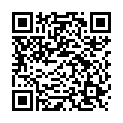|
|
|
| Module code: E1613 |
|
|
6P (6 hours per week) |
|
6 |
| Semester: 6 |
| Mandatory course: yes |
Language of instruction:
English/German |
Assessment:
Oral exam
[updated 14.07.2016]
|
E1613 (P211-0230) Electrical Engineering, Bachelor, ASPO 01.10.2012
, semester 6, mandatory course
|
90 class hours (= 67.5 clock hours) over a 15-week period.
The total student study time is 180 hours (equivalent to 6 ECTS credits).
There are therefore 112.5 hours available for class preparation and follow-up work and exam preparation.
|
Recommended prerequisites (modules):
E1517
E1518
[updated 14.07.2016]
|
Recommended as prerequisite for:
|
Module coordinator:
Prof. Dr. Martin Buchholz |
Lecturer:
Prof. Dr. Martin Buchholz
[updated 14.07.2016]
|
Learning outcomes:
After finishing the combined lecture and laboratory work module the students
-have deepened his radio frequency engineering knowledge
-can calculate and verify complex analogue and digital transmission systems
-know the latest applications of the wired and wireless transmission technologies of the latest transmission standards.
[updated 14.07.2016]
|
Module content:
1. Noise figure and sensitivity of a RF receiver
2. Linear and non-linear signal distortion
3. Frequency multipliers
4. Modulation and demodulation for analogue and digital modulation schemes
5. Receiver architectures
Laboratory experiments:
1. Interferometry: Measurements on an optical fibre by using an optical interferometer
2. Eye pattern: Interpretation of an eye pattern on a 2,5 Gbit/s transmission
3. Spectrum analyzer: Measurement of spectra of modulated signals
4. Network analyzer I: Measurement of S-parameters of passive components
5. Network analyzer II: Measurement of S-parameters of active RF-components
6. Simulation of RF-components and systems with an EDA program
7. Antennas: Measurement of the 3-dimensional radiation pattern
8. Image signal processing: Application of different filter operators
9. Wave propagation: Use of a planning tool for the optimization of digital radio systems
10. Implementation of digital algorithms of the receiver technology in hardware
[updated 14.07.2016]
|
Teaching methods/Media:
Lecture notes, projector, laboratory
[updated 14.07.2016]
|
Recommended or required reading:
Hiebel, M.: Grundlagen der vektoriellen Netzwerkanalyse, Rohde & Schwarz, 2006 Mäusl, R; Göbel, J.: Analoge und digitale Modulationsverfahren - Basisband und Trägermodulation, Hüthig, 2002 Pehl, Erich: Digitale und analoge Nachrichtenübertragung, Hüthig, 2001 Rauscher, Ch.: Grundlagen der Spektrumanalyse, Rohde & Schwarz, 2007 Razavi, B.: RF Microelectronics, Prentice Hall, 1997 Thumm, M.; Wiesbeck, W; Kern, S.:: Hochfrequenzmesstechnik - Verfahren und Messsysteme, Teubner, 1998
[updated 14.07.2016]
|


